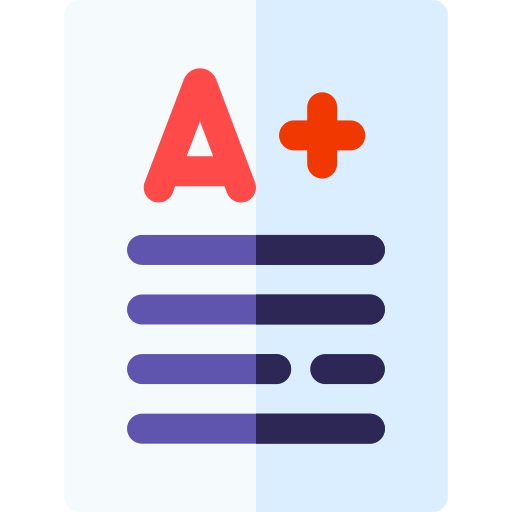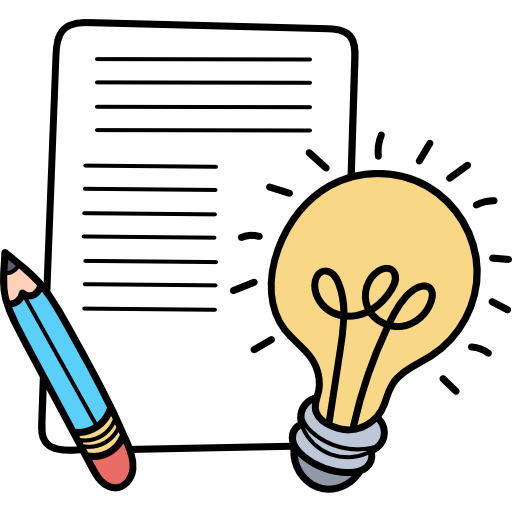أوراق عمل أنجليزي صف ثامن فصل ثالث
Answer the following questions according to the text
In an interview yesterday Mr. Wilson was questioned about the harmful effects of horror movies on teenagers. He argued that such effects were often exaggerated and claimed that other types of films were far more dangerous for young people. When asked to prove this, he pointed out that horror films were often set in unreal situations and were clearly not to be taken seriously. In contrast, he claimed that films showing violent crime were often set in everyday life, and were therefore more damaging.
………. In Mr. Wilson’s opinion, horror films*
A) cost more than other kinds of films
B) are more popular among the elderly than among the young
C) should be banned altogether
D) are less damaging to young people that films of violent crime
E) have recently ceased to appeal to the young
For Mr. Wilson the main difference between a horror film and one*
…………showing violent crime is that the former
A) is mainly concerned with everyday situations
B) is liked by the young, and the latter by the old
C) is unrelated to real life, whereas the latter is
D) is less expensive to produce than the latter
E) rarely receives any attention from the young
………………….. The interviewer wanted to find out whether*
A) young people were being harmed by horror films
B) Mr. Wilson had himself been affected by horror films
C) Mr. Wilson preferred horror films to films of violence
D) people were seriously objecting to horror films
E) the effects of crime films were being exaggerated
Answer the following questions according to the text.
The famous Tower of London was built as a fortress by William the Conqueror. Early in the Middle Ages the kings used it as a palace; later on it was turned into a prison, but only distinguished prisoners,
including statesmen and princes, were held there. Today the Tower is a national museum, where, among other things, the jewelry of the English kings and queens is on display.
It is obvious from the passage that the functions of the Tower of*
……………London
A) were all established by William the Conqueror
B) have always been controlled by the kings
C) have varied greatly over the centuries
D) are all of a military nature
E) have not changed at all since the Middle Ages
………… We learn from the passage that the Tower*
A) was not originally intended to be a fortress
B) was never a prison for ordinary people
C) is still a unique example of medieval architecture
D) was never a residence of English kings
E) functions today only as a jewelers museum
. William the Conqueror’s original purpose in building the Tower*
…………….of London
A) was one of defense
B) was to exhibit his valuable jewellery
C) was strongly criticized later in the Middle Ages
D) remains unknown even now
E) is still being debated among historians
Answer the following questions according to the text.
Never before in history have people been so aware of what is going on in the world. Television, newspapers and radio keep us continually informed and stimulate our interest. The sociologist’s interest in the world around him is intense, for society is his field of study. Indeed, he needs to know what is happening in society; he wants to know what makes the social world what it is, how it is organized, why it changes in the ways that it does. Such knowledge is valuable not only for those who make great decisions, but also for you, since this is the world in which you live and make your way.
The passage emphasizes that whatever goes on in the world*
…………today
A) is quickly forgotten by the majority
B) only concerns the sociologist
C) first makes the headlines in the press
D) is of great interest to everyone
E) can easily be ignored by people in power
It is pointed out in the passage that, among other things*
…………..sociologists are very much interested in
A) our reaction to their studies
B) the effect of television on education
C) the reasons for social change
D) how people make a living in the world
E) environmental problems
One may conclude from the passage that the studies made by*
………….sociologists
A) are extremely useful both to decision makers and to ordinary people
B) are of little general interest
C) receive a lot of attention from the media
D) are primarily intended for students of sociology
E) do not adequately reflect real conditions in the world
Answer the following questions according to the text.
A popular method of treating frozen fingers and toes in very cold even freezing weather is to slowly rewarm them or rub them with snow. The best treatment, however, is not slow rewarming but rapider warming. Putting the frozen fingers or toes in a warm bath or using a hot water bottle are both good ways to treat them. Hot drinks to warm the body from within are also helpful. One must be careful about burning the skin, however. The temperature of any heat applied should not be greater than 43 C.
. The main concern of the passage is *
A) why frozen fingers and toes should be slowly rewarmed.
B) how to keep adequately warm in the winter.
C) how to treat fingers and toes that have been frozen.
D) the dangers of freezing weather for the body.
E) why one should have plenty of hot drinks in winter.
………… It is pointed out in the passage that *
A) the use of hot water bottles to rewarm the body is not advisable.
B) one should try to rewarm frozen fingers and toes fairly rapidly.
C) in rewarming the body the higher the temperature the better the result is.
D) people should be warned not to go out in freezingly cold weather.
E) one should take a bath as often as possible in winter.
……………… The author warns that*
A) the minimum temperature required is 43 C.
B) in rewarming the body, care must be taken not to burn the skin.
C) one should never rub frozen fingers and toes with snow
D) hot drinks must not be taken in immediately.
E) recovery cannot be as rapid as one would expect.
The desires of a child were naturally rather limited in the Victorian era. Toys were simple and comparatively few. There were no bicycles or mechanical models; the average child “made his own fun” from very cheap materials. Really the only shop the child dreamed of entering for his own purposes was the sweatshop. Nowadays a bewildering variety of toys, magazines and entertainment in a multitude of shops, compete for his interest and money; and the boredom of having everything ready-made leads to a constant desire for something new.
……………. It is suggested in the passage that the modern child *
A) wishes he had been born in the Victorian era.
B) suffers from boredom in spite of all the toys.
C) develops his abilities by playing with toys.
D) is well able to amuse himself.
E) is allowed to eat too much.
………….. According to the passage *
A) mechanical toys are essential to a child’s happiness.
B) a child should not be left to “make his own fun
C) home-made toys give more pleasure than ready-made ones.
D) there was a constant desire for something new.
E) simple toys slow down a child’s development.
…………. The passage emphasizes *
A) a child should have money to spend on toys.
B) the importance, in childhood, of a large choice of toys.
C) how lucky the modem child is.
D) that sweets are not good for the health.
Past Simple
Regular verbs, irregular verbs
- Time expressions
He _____ some new shoes last month.*
A) bought B)buying C) buy D) buys
? Where _____ you _____ on holiday last year*
A) did / went B) go / did C) did / go D) do / go
A: _____ you _____ Jane last month*
…………..B: No, I
A) / saw / didn’t B) Did / see / didn’t
C) Did / saw / didn’t D) Did / see / did
A: _____ did she _____ a job*
B: In the car factory
A) When / get B) Where / got
C) Who / get D) Where / get
Max didn’t _____ yesterday afternoon; he _____ at home.*
A) go out / stayed B) go out / stay
C) went out / stayed D) went out / stay
Geoffrey _____ French before, but he _____ at university now.*
A) study didn’t / studies B) didn’t study / study
C) did not study / studies D) didn’t studied / studies
A: _____ did they have _____ lunch*
B: Soup & fish.
A) What / on B) What / for C) Where / in D) Who / for
A: Where _____ you last week*
B: I _____ in Alabama.
A) were / were B) was / is C) were / was D) was / were
I usually _____ for 6 hours a day, but I _____ for 8 hours*
yesterday.
A) work / worked B) works / worked
C) worked / worked D) work / work
Rosemary often _____ to work by bus, but she _____ to work by taxi*
yesterday.
A) got / get B) gets / got C) get / got D) got / got
Bonny and Nick _____ tennis last weekend, but they rarely*
_____
tennis.
A) played / play B) play / play
C) play / plays D) play / played
It _____ a lot in winter here, but it _____ last year*
A) snows / rains B) snowed / rained
C) snow / rain D) snows / rained
Last year it _____ for three months, but it _____ just for two*
weeks.
A) snows / rains B) snowed / rained
C) snowing / raining D) snow / raining
A: _____ it snow a little in winter in Holland*
B: Yes, it _____ . But last winter it _____ snow at all.
A) Do / do / didn’t B) Does / do / doesn’t
C) Does / does / didn’t D) Do / does / don’t
. A: _____ you usually work for 8 hours a day*
B: Yes, I _____ . But last week I _____ for 8 hours a day.
A) Do / do / didn’t work B) Do / did / didn’t worked
C) Did / did / don’t work D) Do / did / don’t work
. A: _____ Alex _____ you yesterday evening*
………………B: No, he
A) Did / helped / didn’t B) Did / helped / did
C) Did / help / did D) Did / help / didn’t



